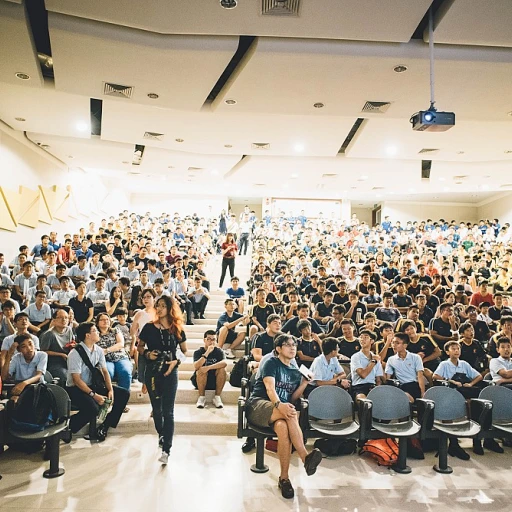
Understanding Routine Maintenance
Grasping the Fundamentals of Maintenance
In the bustling environment of Arabian Emirate companies, understanding the essence of routine maintenance becomes vital for sustainable operations. Routine maintenance, akin to scheduled car maintenance, ensures the 'engine' of your organization runs smoothly. Just like a Mitsubishi Evo requires regular oil changes to prevent the check engine light from alerting drivers, businesses require consistent checks to avoid disruptive malfunctions.
A well-managed maintenance routine moves beyond reactive maintenance, where issues are addressed only when something goes wrong. Instead, it shifts towards preventive maintenance, anticipating potential breakdowns by integrating a reminder system, much like the mileage-based reminders in vehicles signaling the need for maintenance tasks.
It is critical for office managers to comprehend the reminder system format in an organization's maintenance strategy, which helps reset any service reminders just like you would hold the button to reset a main dashboard alert in a car.
This understanding can be expanded upon by exploring the cost-performance index in Arabian Emirate companies, which offers a comprehensive view of how financial planning aligns with operational efficiency in regular maintenance.
Benefits of Regular Maintenance for Office Managers
Enhancing Operational Efficiency through Regular Maintenance
Regular maintenance plays a pivotal role in the seamless operation of Arabian Emirate companies. Office managers, tasked with overseeing the functionality of the company's infrastructure, can significantly benefit from well-organized maintenance routines. Preventive maintenance involves systematically scheduling routine tasks, such as equipment checks, oil changes, and engine light inspections, to preempt breakdowns and ensure optimal performance. Car maintenance, for instance, with its routine maintenance schedule, exemplifies how timely interventions can ward off costly repairs. In the context of a Mitsubishi Evo, resetting the maintenance required light and addressing check engine prompts enhances driving safety and prolongs vehicle life. Likewise, relying on a mileage-based reminder system aids office managers in efficiently planning service appointments, ensuring that every vehicle and piece of equipment receives the care it needs at the right time. Investing in a preventive maintenance system also reduces the reliance on reactive maintenance, which can be more costly and disruptive. Instead of addressing issues as they arise, which can lead to extended downtimes and service interruptions, routine maintenance allows offices to maintain a consistent operational tempo. The inclusion of experienced personnel with years of expertise in executing maintenance tasks allows companies to streamline processes effortlessly. Moreover, the use of technology, such as an info button or a reminder system, helps integrate this maintenance routine into broader operational strategies. Enhancing office management strategies with a well-structured maintenance plan contributes significantly to the overarching goal of optimizing marketing spend for accurate sales forecasting in the UAE more details available here. This comprehensive approach not only supports the core functions of the company but also fosters a culture of efficiency and foresight.Challenges in Implementing Maintenance Schedules
Overcoming Obstacles in Maintenance Scheduling
The challenges faced in implementing effective maintenance schedules in Arabian Emirate companies can be significant, yet addressing these hurdles is essential to ensure seamless operations. Office managers often grapple with a multitude of tasks including routine maintenance such as vehicle checks and office equipment servicing.
Factors contributing to these challenges include:
- Lack of Regular Maintenance: Often, maintenance schedules are neglected until the engine light blinks or the "maintenance required" light illuminates, which can lead to more severe issues such as an unexpected oil change requirement or other vehicle maintenance needs.
- Reactive Over Preventive Maintenance: Emphasizing preventive approaches over reactive measures is necessary but often overlooked, resulting in unnecessary mileage, wear, and tear on company assets such as the Mitsubishi Evo fleet or office equipment.
- Efficient Task Allocation: Mismanagement in assigning maintenance tasks due to lack of a professional system can cause delays. Office managers must strive to implement a reliable reminder system for regular service checks.
Despite these challenges, it's crucial for companies to develop solutions that ensure effective maintenance routines are in place. Embracing technology, for instance, can aid in setting up a mileage-based reminder system, allowing office managers to proactively hold the info button on car dashboards, reset requisite alerts, and preemptively manage maintenance routines before critical issues arise.
Strategies for Effective Maintenance Planning
Developing a Proactive Maintenance Strategy
For office managers in Arabian Emirate companies, creating an effective maintenance strategy involves several key elements. Routine maintenance tasks are essential not only for ensuring the smooth operation of equipment but also for preventing unexpected breakdowns. This preventive approach can be likened to regularly maintaining a car—checking the oil, monitoring tire pressure, and performing regular miles-based service checks to avoid a sudden engine light turning on.
Implementing a well-structured maintenance routine requires a comprehensive understanding of the equipment and systems in use. This includes the use of reminder systems which can alert managers when specific maintenance actions are due. By setting up a mileage-based reminder or a time-based schedule, much like the service requirements for a Mitsubishi Evo, managers can ensure that every piece of equipment is serviced at the appropriate intervals, reducing the risk of reactive maintenance expenses.
Office managers should focus on setting clear, executable plans. This might include training staff to reset maintenance reminders and hold button sequences post-service to ensure records reflect accurate timelines. With years of experience in managing maintenance tasks, many companies have found success by regularly auditing their maintenance schedules and adjusting them to optimize performance and cost efficiency.
Additionally, it is vital to have a system in place to quickly address the "check engine" situations when they arise. While creating a proactive plan is essential, having a reactive protocol can significantly reduce downtime when unexpected issues do occur.
By focusing on both proactive and reactive maintenance strategies, Arabian Emirate companies can not only enhance the longevity and functionality of their assets but also support a more productive and efficient work environment.
Technological Tools for Maintenance Management
Leveraging Technological Solutions for Maintenance Efficiency
In today's rapidly evolving business environment, incorporating technological advancements into routine maintenance practices is crucial. These tools not only streamline processes but also enhance the overall efficiency of maintenance schedules, which is vital for office managers in Arabian Emirate companies. Modern maintenance management leverages several technological tools to ensure equipment, vehicles, and facilities remain in optimal condition. Here are a few examples:- Reminder Systems: These systems are invaluable for keeping track of maintenance tasks like oil changes, checking the engine light, and addressing the "maintenance required" notifications. By implementing a mileage-based reminder system, office managers can efficiently schedule routine maintenance activities, ensuring the longevity of vehicles such as the Mitsubishi Evo.
- Software Solutions: Maintenance management software offers comprehensive solutions that cover both preventive maintenance and reactive maintenance strategies. These tools help to reset and log activities for equipment and vehicle fleet, thereby avoiding critical maintenance light alerts that might disrupt operations.
- Remote Monitoring: With advancements in technology, remote monitoring systems allow for the continuous tracking of an organization's infrastructure. They provide real-time data, which is crucial to proactively manage maintenance activities efficiently, even from a distance.
- Mobile Applications: Mobile apps have become an essential tool for managing maintenance tasks. They allow office managers to track maintenance activities on-the-go, receive alerts for required service, and hold information such as routine checklists at the push of a button.
Case Studies: Success Stories from Arabian Emirate Companies
Insights from Successful Maintenance Practices in the UAE
Arabian Emirate companies have increasingly recognized the importance of adopting regular maintenance routines, moving away from reactive maintenance strategies. This shift is particularly evident in industries relying heavily on equipment and vehicles like the Mitsubishi Evo.- Routine and Preventive Maintenance Adoption: These companies have embraced preventive measures, ensuring that maintenance tasks and routines are executed on schedule to avoid disruptions. For instance, using systems that prompt maintenance required reminders when certain mileage is reached or when a check engine light appears.
- Technological Integration in Maintenance: Companies have started using advanced reminder systems that are mileage-based to manage both routine maintenance and urgent tasks effectively. For example, an info button feature allows employees to check and track the status of pending maintenance tasks.
- Efficient Vehicle Maintenance: For vehicle fleets, a common practice is to conduct routine oil changes and engine checks, using a maintenance light or a maintenance required light to signal required interventions. By doing so, companies ensure their vehicles remain operational and safe for driving experiences.
- Employee Training and Experience Utilization: Organizations leverage years of experience within their teams to enhance maintenance processes. They encourage staff to reset reminders - such as holding the reset button after an oil change - ensuring the reminder system is accurately updated.













